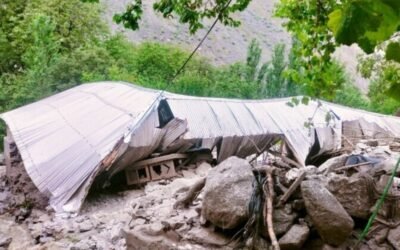In a decisive move to address the devastating impacts of recent floods and to prepare the nation for future climate-related challenges, the federal government today declared a national climate and agriculture emergency. The decision was made during a federal cabinet meeting chaired by Prime Minister Shehbaz Sharif, where a comprehensive strategy was formulated to mitigate economic fallout, support affected populations, and build long-term resilience.
A Unified National Response to the Flood Crisis
The Prime Minister emphasized the urgent need for a unified, comprehensive roadmap to tackle the challenges posed by climate change, acknowledging that this monumental task requires the cooperation and consultation of all provincial governments. He announced the immediate formation of a special committee, led by Planning Minister Ahsan Iqbal, to recommend measures for mitigating the impacts of the deluge on the economy. The committee’s terms of reference are to be finalized swiftly to ensure prompt action.
In a post-meeting press conference, Minister for Parliamentary Affairs Dr. Tariq Fazal Chaudhry confirmed the Prime Minister’s directive for the immediate enforcement of the climate emergency. He highlighted that Pakistan has been severely affected by shifting weather patterns, a consequence of global climate change. Dr. Chaudhry admitted that past failures to protect forestland and prevent encroachments on natural waterways had exacerbated the current flooding situation, which has devastated dozens of districts across the country, particularly in Punjab.
To address this, Prime Minister Sharif has tasked Climate Minister Musadik Malik with submitting a comprehensive report on climate change strategies within 15 days. The cabinet will then deliberate on the report to formulate effective policies to protect the nation from future devastating losses.
The minister noted that since 2022, Pakistan has experienced significant flooding in Khyber Pakhtunkhwa, Gilgit-Baltistan, and Punjab. The current floodwaters are now flowing into Sindh from the five-river basin, and government efforts are focused on minimizing losses in that region as well. The cabinet discussed in detail the extensive destruction, particularly to the agriculture sector, along with the human and financial tolls.
The declaration of an agriculture emergency will aid in assessing the full extent of damage to agriculture and will inform decisions on how to compensate farmers for their losses. Recognizing that these challenges cannot be overcome in isolation, the Prime Minister has decided to convene an apex-level meeting of all provincial chief ministers and other stakeholders, including representatives from Gilgit-Baltistan and Azad Kashmir. This collaborative approach is intended to ensure a unified and effective national response.
A report by the Punjab Provincial Disaster Management Authority indicates that the monsoon floods have affected 4.2 million people, 1.58 million animals, and more than 4,400 villages in Punjab alone. Gilgit-Baltistan has also borne the brunt of flash and glacial floods, with significant destruction to houses and agricultural land.
Cabinet Lifts Four-Year Ban on Gas Connections
In a separate but equally significant development, the cabinet approved the lifting of a four-year-long ban on new domestic gas connections and the supply of Regasified Liquefied Natural Gas (RLNG). Minister for Parliamentary Affairs Dr. Tariq Fazal Chaudhry praised the Prime Minister’s decision, stating it resolves a major issue that households have been facing since the ban was imposed in 2021.
Petroleum Minister Ali Pervaiz Malik elaborated on the decision, confirming that the two state-run gas companies, SNGPL and SSGCL, have been instructed to begin accepting applications for new gas connections. He noted that RLNG would be 30-35% cheaper than imported Liquefied Petroleum Gas (LPG), providing a more affordable energy source for the public. Consumers who had previously applied for connections will be given the option to switch to RLNG and will be required to deposit a security fee as per the Oil and Gas Regulatory Authority’s (OGRA) regulations.
Minister Malik also assured that efforts are underway to boost local gas production, aiming to reduce the nation’s dependency on RLNG in the future.
In addition to these key decisions, the cabinet also approved the trilateral intergovernmental framework agreement for a joint feasibility study between Uzbekistan, Afghanistan, and Pakistan, a project considered vital for regional trade and connectivity. The cabinet also endorsed the decisions of its various committees, including the Economic Coordination Committee (ECC), the Cabinet Committee on Inter-Governmental Commercial Transactions, and the Cabinet Committee for Legislative Cases.




























